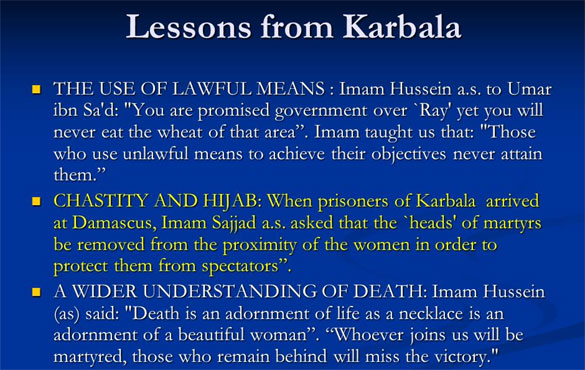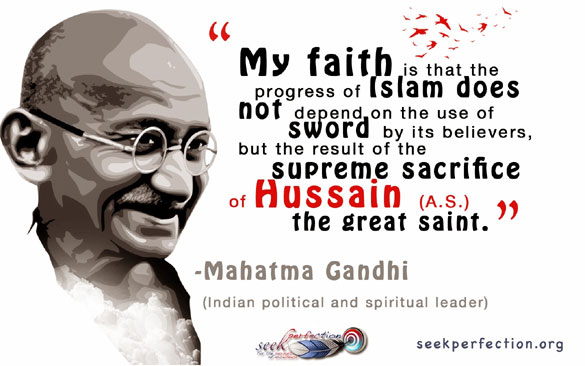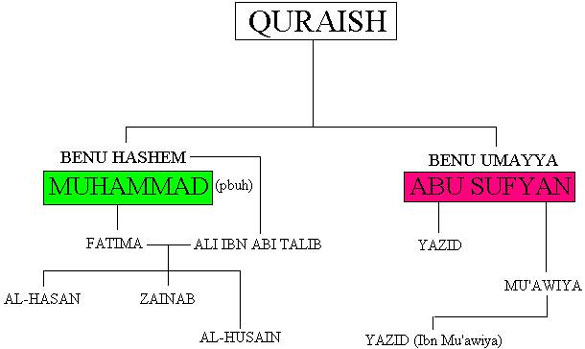
By Mushtaq Ul Haq Ahmad Sikander, New Age Islam
03 September 2020
The tragedy at Karbala has the significance of a watershed in the history of Islam. Karbala signifies the defiance of status quo and a war against those who oppress masses in the name of religion. Imam Hussain (May Allah be pleased with him), his family members and supporters stood for the spirit of Islam that was retrograded by the clan of Ummayads lead by its monarch Yazid. Yazid was trying to justify the retrograding of Caliphate to monarchy by stating that Muslim Empire is too large to be governed by a Caliph who implements Shariah in letter and spirit, thus giving legitimacy to the ill-founded concern that Caliphate as a system has become redundant to govern the Muslim world. Imam Hussain’s struggle was to testify through his character and later martyrdom that Islamic system is vibrant, broad and plural enough to meet the challenges of times without compromising its spirit.

There is a difference of opinion among various scholars about the events leading to the tragedy of Karbala, but most scholars have the consensus over the fact that martyrdom of Imam Hussain, his family and supporters was unjustified and their martyrdom became an inspiration for all movements that aimed against oppression and for the liberation of masses from bigotry, superstition and religious dogmatism. The tussle among the Mustakbirun (arrogant, powerful) and Mustadifun (Oppressed, weak) is still an ongoing conflict in the world. This conflict is supra national, lingual, regional, religious and educational.
The tragedy of Karbala is a historical testament that we have a long struggle ahead to realize the goals of Karbala. The oppressors have only one religion i.e. to use any means necessary to keep the people docile, dormant and asleep so that their vested interests and status quo is maintained. This important lesson of Karbala can help Muslim Ummah overcome the cancer of sectarianism because the Mustakbirun are benefitted from the sectarianism that harms Muslim masses but benefits them.

Another big lesson that we can infer from the Karbala tragedy is that of leadership of Muslim women. Muslim women who now find themselves at the crossroads of tradition and modernity with patriarchy ruling roost. Patriarchy has been justified by male chauvinists by misinterpreting and misusing the gender just principles of Islam. In the aftermath of Karbala tragedy, the family members captured and presented before Yazid were exclusively women and children except Imam Zayn ul Aberdeen. Imam Hussain’s Sister Hazrat Zainab (May Allah be pleased with her) stated bravely, boldly and courageously the truth to the power headed by the tyrant, sadist monarch Yazid. It is because of her leadership and eloquence that the events of Karbala have been handed down to generations that inspired numerous liberations, literary and mass movements.
The women of the house of Imam Hussain are still an epitome of sacrifice, leadership and dedication that Muslim women can emulate to excel. If it was not for Hazrat Zainab, the tragedy of Karbala would have gone down in the annals of history as a story of a certain massacre. Muslim women have in her character and personality a holistic personality that calls them to take their space and lead in various walks of life.

The tragedy of Karbala calls every person with conscience to carry forward the mantle of cause and struggle for which the martyrs at Karbala laid down their lives. Karbala reminds and inspires us to stand against every form of oppression, racism and sectarianism. The real tribute to martyrs of Karbala is to live and implement the ideals that the stood and sacrificed for. Any Islamic struggle is incomplete without inclusion of values of Karbala martyrs.
-----
M.H.A. Sikander is Writer-Activist based in Srinagar, Kashmir
New Age Islam, Islam Online, Islamic Website, African Muslim News, Arab World News, South Asia News, Indian Muslim News, World Muslim News, Women in Islam, Islamic Feminism, Arab Women, Women In Arab, Islamophobia in America, Muslim Women in West, Islam Women and Feminism

No comments:
Post a Comment